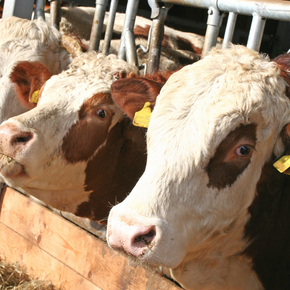
Further Bluetongue Update
February 6, 2024
A case of the notifiable disease, Bluetongue was confirmed in a cow near Canterbury, Kent, on 11 November, following routine testing. As of 4th Feb, there have now been 83 Bluetongue cases on 44 premises in Kent and Norfolk. Most cases have been in cattle but some have been found in sheep. Until recently all animals have been humanely culled however midge activity is currently very low making the risk of onward transmission much less likely. The latest cases have therefore not been culled but placed under movement restrictions instead.
Bluetongue is a viral disease transmitted by biting midges, which affects all ruminants (e.g. sheep, cattle, goats and deer) and camelids (e.g. llama and alpaca). The current strain circulating is BTV-3 which is different to the previous strain we had in the UK. Due to this being a new strain, the vaccine we had previously will not offer cross-protection against this new BTV-3 strain. Bluetongue does not pose a threat to human health, but it remains a notifiable disease and any suspicion must be reported to APHA on 0300 020 0301.
Symptoms of BTV-3 can vary across ruminants, with sheep generally exhibiting more overt symptoms than cattle. These include in sheep; drooling, mouth lesions, high fever, lameness, oedema (swollen heads) and sudden death. Cattle are not usually as severely affected but may show similar clinical signs as well as teat, eye, coronary band and nose lesions.
The advice for farmers is to beware if buying animals in from Europe, take action to report any signs, and remain vigilant.
For more information, please visit www.gov.uk/guidance/bluetongue or call the surgery.
